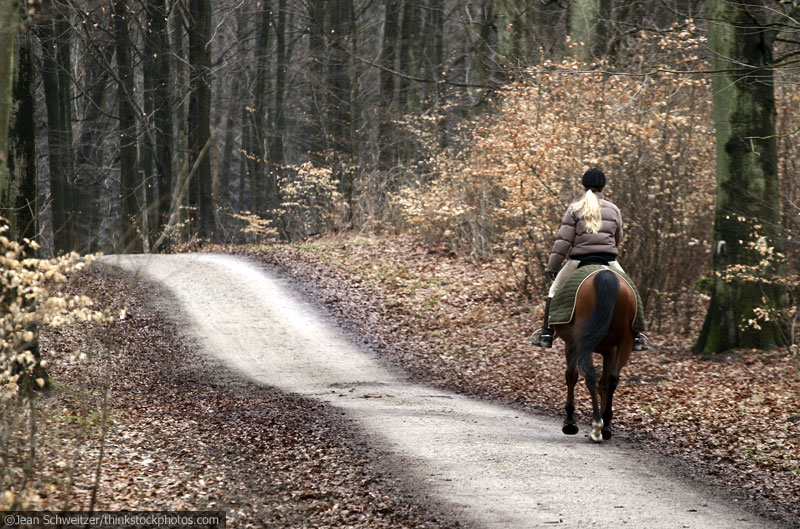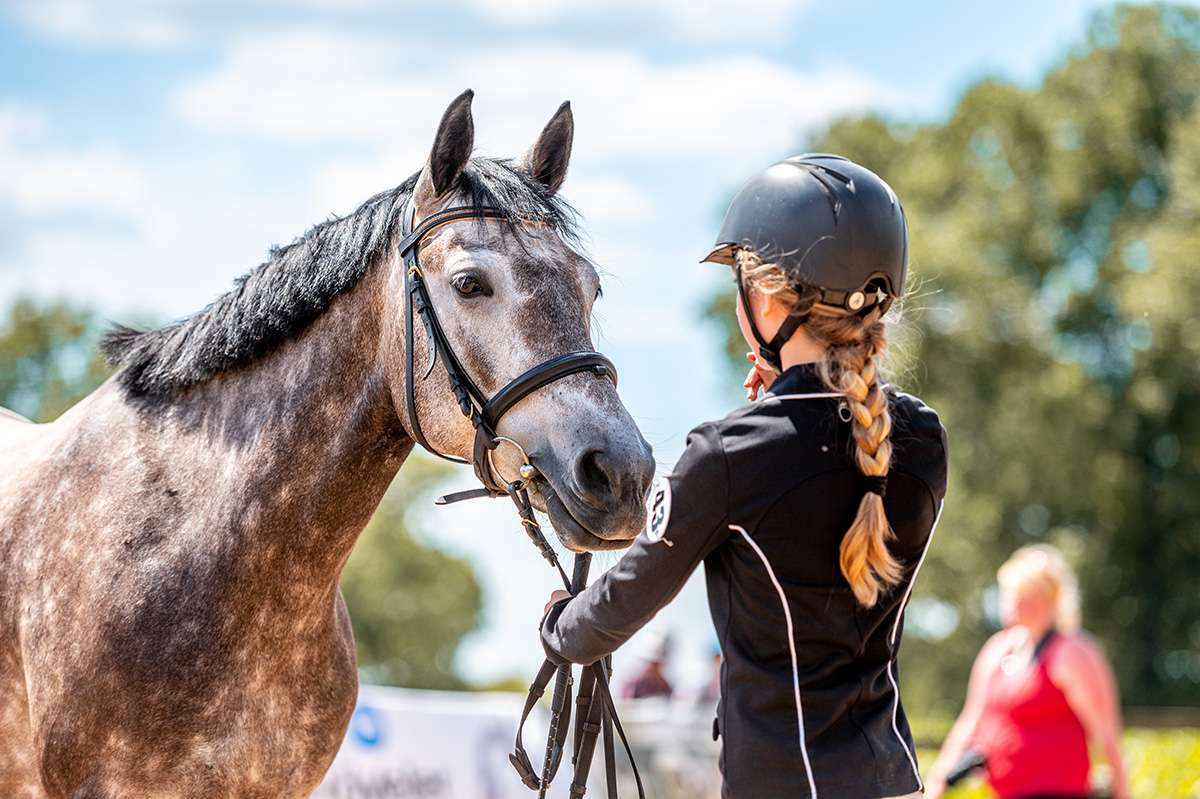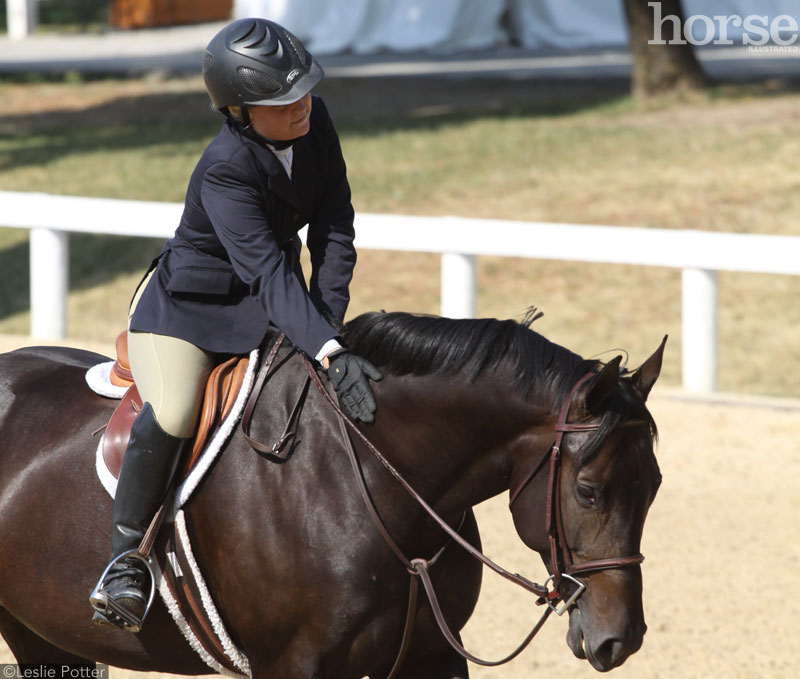
When people search for a new horse, the first thing they often do is make a list of attributes they want in the horse, such as size, color and markings. They then try to find a horse that closely matches the list.
When searching for a trail horse, my advice is to forget the list of those attributes. You shouldn’t care what color he is, how big he is (unless he’s way too big), how small he is (unless he’s too small to carry you), or if the horse is a mare or gelding. You shouldn’t care too much if his legs aren’t perfectly straight, if his neck doesn’t come out of his withers just so or his head looks like a briefcase. If you get too hung up on what he looks like, it will cloud your judgment when it comes to evaluating his abilities. Therefore, forget his physical attributes and go straight to checking his credentials. Can he do the job?
The only way to truly determine if a particular horse is the one for you is to spend some time on the trail with him. The seller should let you take him on a few trial trail rides. If the seller won’t, then pass on the horse. Take the horse out as many times as you can and expose him to as many different situations as you can before finalizing a sale. Here are the skills a good trail horse should possess:
- He must be patient. A horse that is is in a hurry, is antsy or won’t stand still is annoying.
- He must be willing to lead, follow or go his own way, when necessary.
- He must be willing to drink whatever water is available to him.
- He must like to travel, enjoy going to new places and seeing new country.
- He must be social and get along with other horses. A trail ride is no place for a horse that kicks, bites or generally dislikes other horses.
- He must willingly go over, under or around whatever is before him.
- He must never jump what he is able to step over.
- He must be willing to jump what he cannot step over.
- He must accept encounters with things he has never seen before as a routine part of his job.
- He must have a very low flight response. Some horses will spin and bolt at the slightest sound or sight. They act first, ask questions later, which is not a desirable characteristic of a trail horse.
- He must accept flapping jackets and the rattle of plastic bags.
- And last, but not least, you must like him and he must genuinely seem to like you. The two of you are going to be spending a lot of time together. It’s important that you get along with each other.
If the horse has the credentials, then go on to the very important pre-purchase exam. During the pre-purchase exam, your veterinarian will check the horse’s soundness and ability to handle the rigors of trail riding. The vet will also check for conformation faults that may hinder the horse’s abilities on trail. However, the best trail horse I ever had also had the worst conformation of any horse I’ve owned. His neck was too heavy, his back was too long and he stood like a bulldog. Most people would take one look at his crooked legs and turn away. But he turned out to be a horse whose innate skills on the trail far outweighed his poor conformation. He wasn’t built to do what he could, and yet he stayed sound for years. For this reason, I have always weighed less-than-ideal physical attributes carefully against skill and disposition. I will always take a good-minded horse with a conformation flaw over a perfectly-proportioned nut case.
And speaking of nut cases, some horses love the great outdoors, while others are scared to death of it. If a young, inexperienced horse is insecure about going out on the trail, he will probably learn to love it over time if he is properly exposed to it and learns in the company of a seasoned trail horse. However, a mature horse that is advertised as being a good trail horse but in reality isn’t, might not ever be. Just as jumpers, reiners, cutters and dressage horses have a certain amount of natural aptitude for their discipline, so, too, do trail horses.
A good trail horse deserves the utmost respect. He should be treated like he is the king of the mountain, and in return, he will take care of you. You can’t measure having a good feeling about a horse. But if its there, you’ll know it. That’s how I found my perfect trail horse.
Jennifer Nice has competed in top-level endurance competitions, so she appreciates the attributes of a well-trained trail horse that can handle any situation in good form.





Great advice. A good trail horse is so much more than most people realize. He has to deal with far more and be able to make choices and decisions on his own.
There is no such thing as JUST a trail horse.
Conformation is important for a tail horse to perform well but as stated minor conformation flaws and a good mind are better then perfection and lack of sense.
I love trail riding and I love a horse that not only is bombproof, but enjoys trail riding and exploring because if the horse enjoys it so do I!
I don’t own a horse yet but I’ve ridden on the trail before. When the time comes to get a horse, I’ll use this advice.Trail riding is very enjoyable for me so when I get a horse I want him to enjoy it too!
Absolutley the best article, and so true!! I have a horse with not the best conformation but a better trail horse I couldn’t find. She isn’t going to win any ribbons in a show, but is the world to me – tried and true blue 🙂
And sometimes you don’t quite need all of those. A somewhat spooky horse can be taught to be less so, especially if they trust you. My gelding may not be the biggest fan of bicycles (I have a scar on my face from when my stirrup leather broke mid-flight) or plastic bags (he gets anxious, but doesn’t really run), but he loves me and does his best to take care of me.